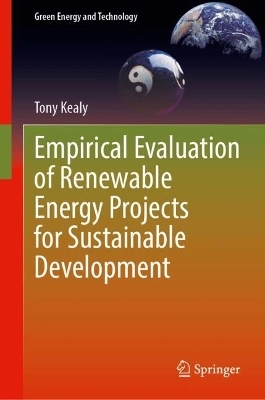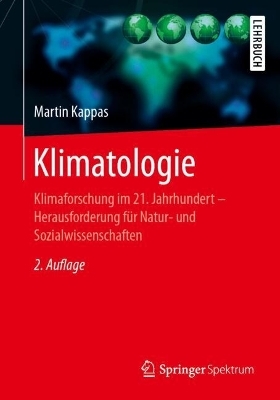
Empirical Evaluation of Renewable Energy Projects for Sustainable Development
Springer International Publishing (Verlag)
978-3-031-65190-8 (ISBN)
- Noch nicht erschienen - erscheint am 05.09.2024
- Versandkostenfrei innerhalb Deutschlands
- Auch auf Rechnung
- Verfügbarkeit in der Filiale vor Ort prüfen
- Artikel merken
This book critically analyses renewable energy sources of electrical power/energy utilised to save money on the amount of electrical energy imported from the national electricity grid and help nations meet binding environmental goals. The main renewable energy sources analysed are wind turbine generators, hydroelectric plant, and solar PV systems. The book presents a robust evaluation framework that can be used in the renewable energy analysis process. One of the main findings is the identification of short-term variations associated mainly with wind turbine electrical generator power output signals. These short-term variations are negating the potential advantages of installing wind turbine electrical generators. One of the suggested methods to counteract the short-term variations is the use of energy storage. Without utility-sized energy storage, binding energy targets will be very difficult to achieve. The three main realms of sustainable development, namely environmental, economic, and human realms, are discussed throughout the book. The three realms are closely interlinked so a weakness identified in any one realm affects the overall sustainability of the (business, country, any organisation) development process.
Dr Tony Kealy began his career in the electrical industry by embarking on an electrical apprenticeship in 1980 with Lynch, Monaghan, and O'Brien (Ireland), qualifying in 1984. He then relocated to the UK to work for several years as a maintenance electrician with United Biscuits, Waxlow Road, Harlesden, London NW10. On returning to Ireland in the 1990s, Dr Kealy enrolled on a full-time academic degree programme in Electronic Engineering at Dundalk Institute of Technology (DKIT), and later at Dublin City University (DCU), graduating with a Bachelor of Engineering (in Electronic Engineering) in 2001 from DCU. Dr Kealy completed his full-time level 9 Master of Philosophy (M Phil) in February 2004, with his research focusing on electrical control systems. Dr Kealy subsequently began his full-time academic lecturing career in 2004 in the School of Electrical & Electronic Engineering at the Technological University of Dublin (TU Dublin), previously known as the Dublin Institute of Technology (DIT), Kevin Street, Dublin 8. In parallel with his academic duties, Dr Kealy completed his level 10 Doctor of Philosophy (PhD), graduating in 2019 from TU Dublin, now relocated to City Campus, Grangegorman, Dublin 7. The focus of Dr Kealy's PhD thesis was corporate social responsibility (CSR) and its related term, sustainable development (SD). A significant portion of the PhD thesis focused on renewable energy electrical generators. Throughout his career, Dr Kealy has consistently sought to bridge the gap between academia and the real-world electrical power community and his research output is reflective of this valuable association.
Review of the Interlinked Environmental, Economic and Social Realms of Sustainability.- Evaluation of 850-kW WTG and 40-kW Hydro.- Evaluation of Wind Farm Comprising 850-kW WTG and 900-kW WTG.- Evaluation of 3MW WTG.- Evaluation of 300-kW WTG (Technical).- Evaluation of 300-kW WTG (Ethics).- Evaluation of 10-kW WTG.- Evaluation of 4-kW PV and 169-kW PV Array.- Ireland's Increased Wind Power and Related Energy Benchmarks.- Energy Storage Solutions for Renewable Energy Generators.- Overall Discussion.- Overall Conclusions.
| Erscheint lt. Verlag | 5.9.2024 |
|---|---|
| Reihe/Serie | Green Energy and Technology |
| Zusatzinfo | Approx. 490 p. 15 illus. |
| Verlagsort | Cham |
| Sprache | englisch |
| Maße | 155 x 235 mm |
| Themenwelt | Naturwissenschaften ► Biologie ► Ökologie / Naturschutz |
| Technik ► Elektrotechnik / Energietechnik | |
| Schlagworte | Power Quality Assessment • Power Variability • renewable energy • Sustainable Development Metrics • Triple-Bottom-Line |
| ISBN-10 | 3-031-65190-1 / 3031651901 |
| ISBN-13 | 978-3-031-65190-8 / 9783031651908 |
| Zustand | Neuware |
| Haben Sie eine Frage zum Produkt? |
aus dem Bereich


